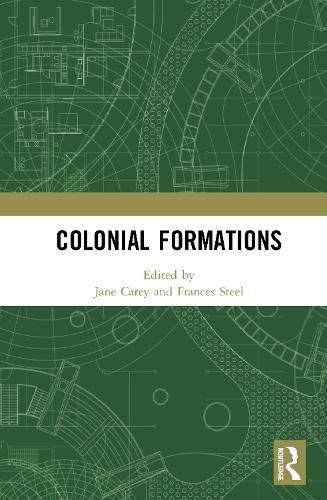Readings Newsletter
Become a Readings Member to make your shopping experience even easier.
Sign in or sign up for free!
You’re not far away from qualifying for FREE standard shipping within Australia
You’ve qualified for FREE standard shipping within Australia
The cart is loading…






Colonial Formations highlights the critical importance of colonial dynamics at the so-called peripheries of the British Empire. With a focus on the Australasian settler colonies, the Pacific, India, and China, it examines colonised peoples’ subjectivities, mobilities and networks, through accounts of labour, law, education and activism.
Decentring the British metropole, while shedding light on its enduring power, contributors chart the vast array of mobilities and connections that shaped these dynamics. They illuminate contexts and experiences of labour, education, touring, courtrooms and anticolonial struggles. Many attend to questions of colonial belonging and its limits - within cultures of sociability - or citizenship and its attendant benefits and rights. The chapters show how colonised peoples, both Indigenous and ‘coloured’ migrants, critiqued and mobilised to challenge imposed strictures on their life possibilities, whether in individual colonies, in cross-colonial networks or across the imperial arena. In doing so, this collection offers new insights into the interplay of place, mobility and power, and on the critical importance of colonial formations.
The chapters in this book were originally published as a special issue of the journal History Australia.
$9.00 standard shipping within Australia
FREE standard shipping within Australia for orders over $100.00
Express & International shipping calculated at checkout
Colonial Formations highlights the critical importance of colonial dynamics at the so-called peripheries of the British Empire. With a focus on the Australasian settler colonies, the Pacific, India, and China, it examines colonised peoples’ subjectivities, mobilities and networks, through accounts of labour, law, education and activism.
Decentring the British metropole, while shedding light on its enduring power, contributors chart the vast array of mobilities and connections that shaped these dynamics. They illuminate contexts and experiences of labour, education, touring, courtrooms and anticolonial struggles. Many attend to questions of colonial belonging and its limits - within cultures of sociability - or citizenship and its attendant benefits and rights. The chapters show how colonised peoples, both Indigenous and ‘coloured’ migrants, critiqued and mobilised to challenge imposed strictures on their life possibilities, whether in individual colonies, in cross-colonial networks or across the imperial arena. In doing so, this collection offers new insights into the interplay of place, mobility and power, and on the critical importance of colonial formations.
The chapters in this book were originally published as a special issue of the journal History Australia.